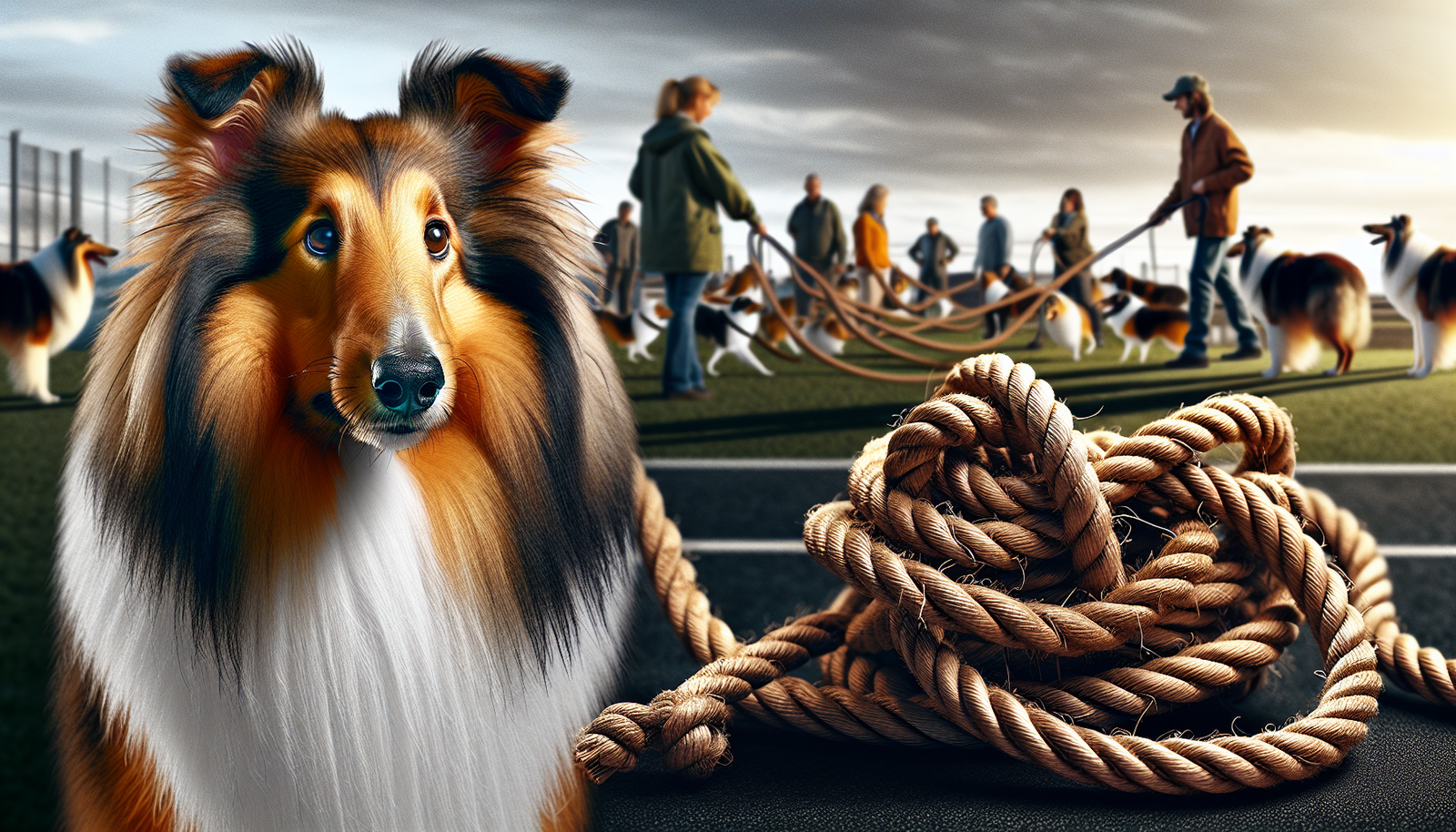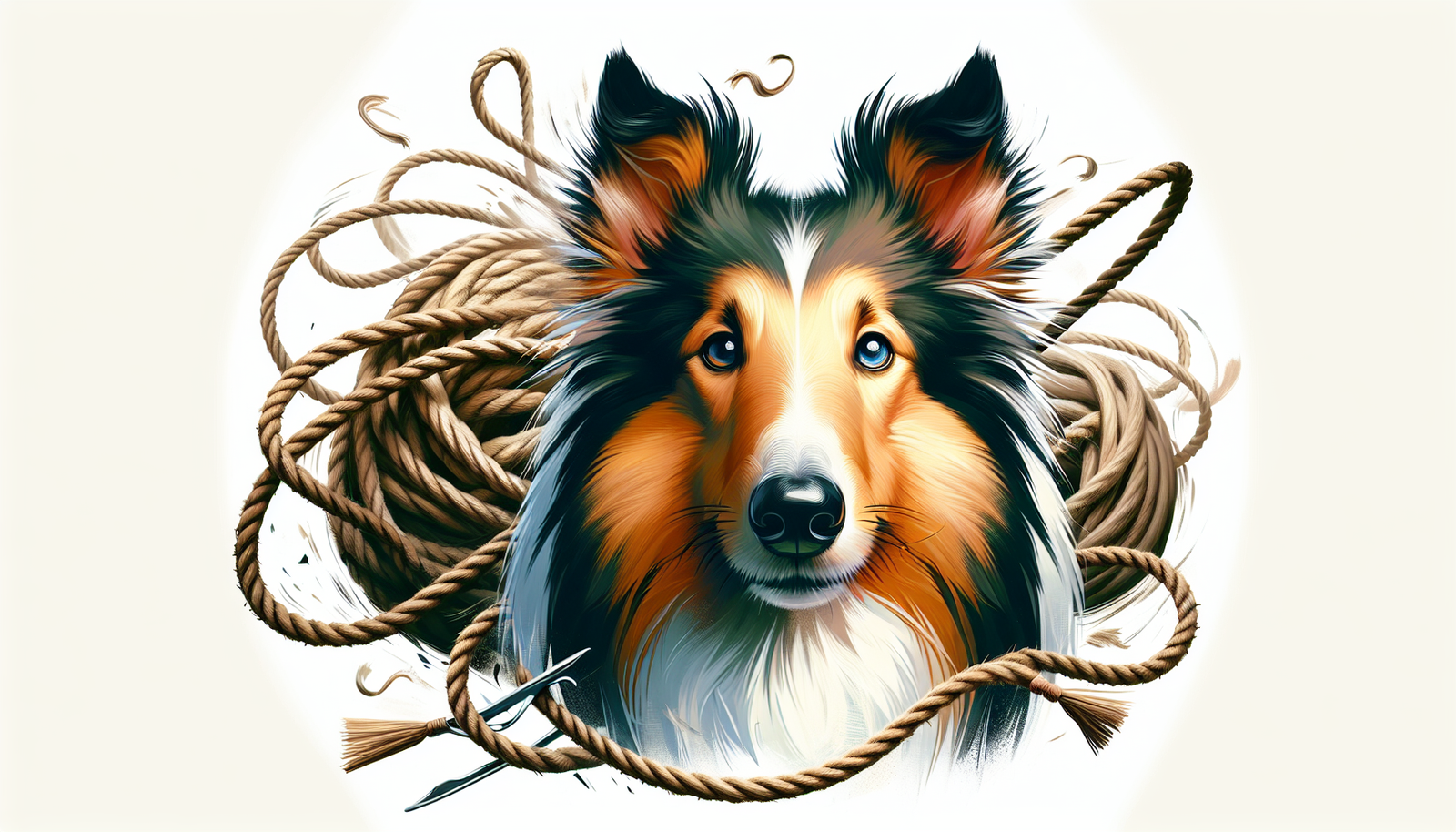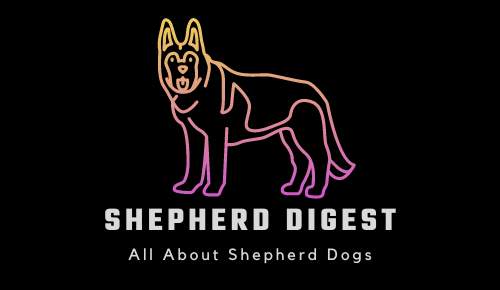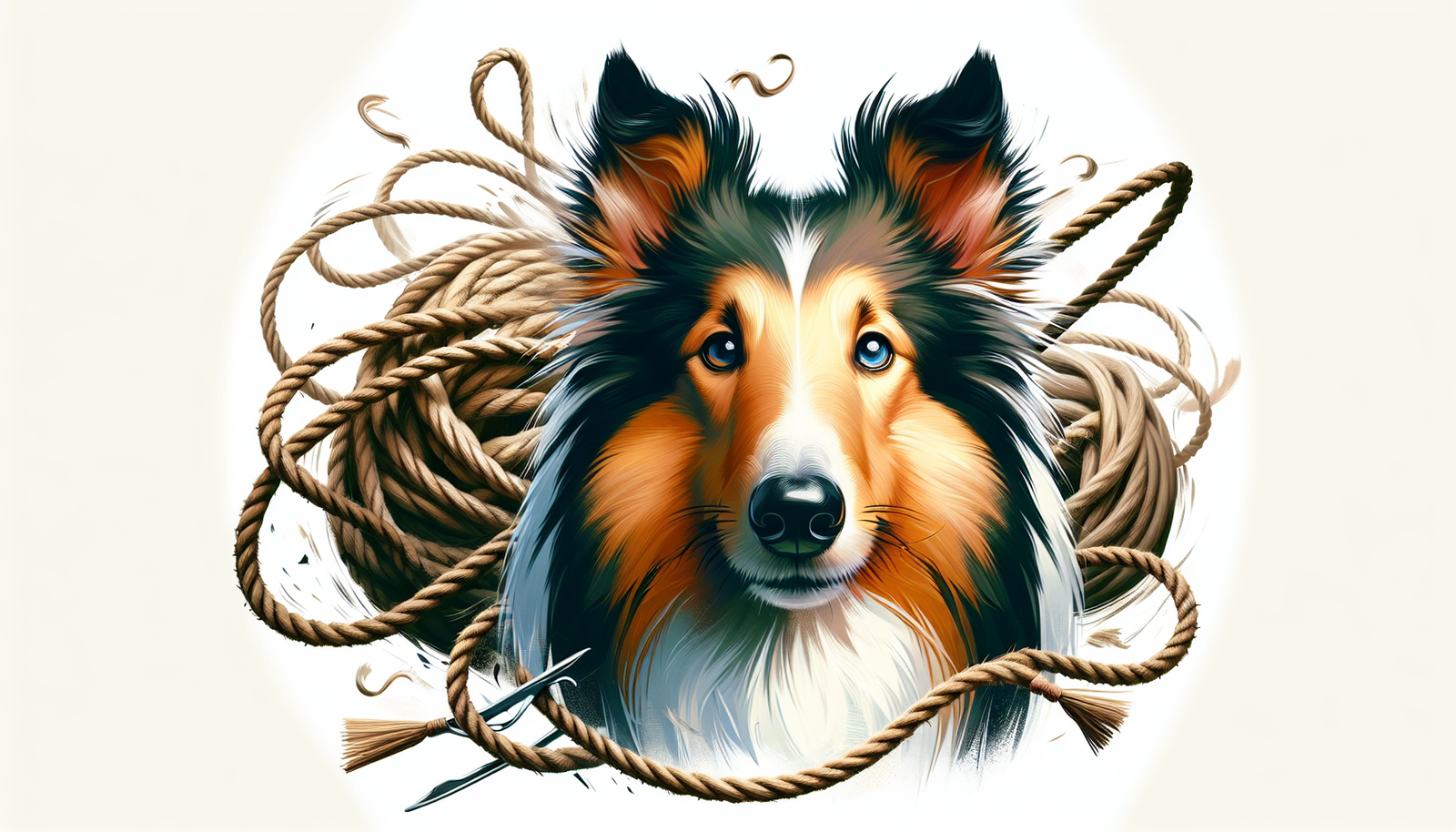If you’ve found yourself struggling with stubborn behavior from your Rough Collie during training sessions, don’t worry – you’re not alone. Many dog owners face this challenge and wonder how to effectively manage their furry friend’s resistance. In this article, we’ll explore some practical tips and techniques that can help you navigate your Collie’s stubborn tendencies and improve their training experience. By implementing these strategies, you’ll be well on your way to building a strong bond with your canine companion and achieving successful training sessions.
Understanding Rough Collies’ Behavior
Rough Collies are known for their gentle and loyal nature, making them wonderful companions. However, like any dog breed, they have their own unique set of behaviors and tendencies that can sometimes be challenging for their owners to manage. To ensure a harmonious relationship with your Rough Collie, it’s important to have a deep understanding of their behavior.
Characteristics of Rough Collies
Rough Collies are intelligent and highly trainable dogs. They have a strong herding instinct, which can manifest in behaviors such as nipping, herding, and chasing. While they are generally gentle and friendly, they can also be reserved around strangers. Rough Collies are also known for their loyalty and strong bond with their families.
Common stubborn behaviors in Rough Collies
While Rough Collies are generally obedient and eager to please, they can sometimes exhibit stubborn behavior. Some common stubborn behaviors in Rough Collies include pulling on the leash, ignoring commands, excessive barking, jumping on people, chewing on furniture, digging in the yard, nipping or herding behavior, fear or aggression towards strangers, separation anxiety, and resource guarding. It’s crucial to address these behaviors to ensure a well-behaved and happy Rough Collie.
Importance of addressing stubborn behavior
Addressing stubborn behavior in Rough Collies is essential for several reasons. Firstly, it ensures the safety and well-being of both the dog and the people around them. Secondly, it helps in building a strong bond and trust between you and your Rough Collie. Lastly, addressing stubborn behavior sets the foundation for a well-rounded and obedient dog, making your relationship with your Rough Collie more enjoyable.
Establishing a Positive Training Environment
Creating a positive training environment is crucial for effectively addressing stubborn behavior in your Rough Collie. By providing a calm and structured training space, using positive reinforcement techniques, and setting clear and consistent rules, you can create an environment that promotes learning and cooperation.
Creating a calm and structured training space
When training your Rough Collie, it’s important to choose a quiet and distraction-free area where you can focus on the training session. This will help your dog stay focused and engaged. Remove any potential distractions such as toys, food, or other animals to ensure that your Rough Collie can fully concentrate on the training exercises.
Using positive reinforcement techniques
Positive reinforcement is a highly effective training method that involves rewarding your Rough Collie for exhibiting desired behaviors. This can be done through verbal praise, treats, or playtime. By rewarding your dog for good behavior, you are encouraging them to repeat that behavior in the future. Positive reinforcement strengthens the bond between you and your Rough Collie and makes the training experience more enjoyable for both of you.
Setting clear and consistent rules
Consistency is key when training a Rough Collie. It’s important to establish clear rules and expectations right from the beginning. Communicate your expectations to your Rough Collie consistently and enforce them every time. This will help your dog understand what is expected of them and avoid confusion. Consistency in training is crucial for addressing stubborn behavior and ensuring long-term success.

Building a Strong Foundation for Training
Building a strong foundation for training lays the groundwork for addressing stubborn behavior in your Rough Collie. Socializing your dog from a young age, teaching basic obedience commands, and implementing leash training are important steps in this process.
Socializing your Rough Collie from a young age
Socialization is crucial for every dog, and Rough Collies are no exception. Start socializing your Rough Collie from a young age by exposing them to various people, dogs, and environments. This will help them become comfortable and well-adjusted in different situations, reducing the likelihood of fear or aggression towards strangers. Proper socialization also helps with impulse control, which can help in managing stubborn behaviors.
Teaching basic obedience commands
Teaching your Rough Collie basic obedience commands, such as sit, stay, and come, is essential for effective communication and managing stubborn behavior. These commands provide structure and help your dog understand what is expected of them. Start with simple commands and gradually increase the difficulty as your Rough Collie progresses. Use positive reinforcement techniques to reward and encourage your dog’s compliance.
Implementing leash training
Leash training is a crucial aspect of building a strong foundation for training. It helps in managing your Rough Collie’s natural herding instincts and prevents unwanted pulling or lunging behavior. Start by introducing your dog to a properly fitted harness or collar and a sturdy leash. Use positive reinforcement techniques to reward your Rough Collie for walking calmly by your side. Gradually increase the duration and difficulty of walks as your dog becomes more comfortable with leash training.
Addressing Specific Stubborn Behaviors
Every Rough Collie may exhibit different stubborn behaviors, and it’s important to address them individually. Here are some common stubborn behaviors and strategies for dealing with them:
Pulling on the leash
If your Rough Collie tends to pull on the leash during walks, consider using a front-clip harness that discourages pulling. Practice loose-leash walking and reward your dog for walking calmly beside you.
Ignoring commands
If your Rough Collie is consistently ignoring your commands, try using more enticing rewards or increasing the value of the rewards. Be patient and persistent, and only give the command once. Avoid repeating commands or using a harsh tone, as this can lead to confusion or resentment.
Excessive barking
Excessive barking can be a challenge to manage. Identify the triggers for your Rough Collie’s barking and work on desensitization techniques. Use positive reinforcement to reward your dog for calm behavior and teach a “quiet” or “enough” command.
Jumping on people
Jumping on people is a common behavior in Rough Collies. Teach your dog an alternative behavior, such as sitting or offering a paw, and reward them for appropriate greetings. Consistency and redirecting their energy into more appropriate activities are key.
Chewing on furniture
If your Rough Collie is chewing on furniture, provide appropriate chew toys and redirect their attention to these toys whenever you catch them in the act. Ensure that they have plenty of mental and physical stimulation to prevent boredom.
Digging in the yard
If your Rough Collie loves to dig in the yard, designate a specific area where they are allowed to dig and redirect their attention to that spot. Provide them with alternative activities, such as puzzle toys or interactive play, to keep them mentally stimulated.
Nipping or herding behavior
Rough Collies may exhibit nipping or herding behavior due to their strong herding instincts. Redirect this behavior by introducing appropriate outlets, such as herding games or obedience training. Consistency and positive reinforcement are key in managing this behavior.
Fear or aggression towards strangers
If your Rough Collie shows fear or aggression towards strangers, consult with a professional dog trainer or behaviorist. They can help you develop a personalized training plan, desensitize your dog to new people, and address any underlying fear or anxiety.
Separation anxiety
If your Rough Collie experiences separation anxiety, gradual desensitization and counterconditioning techniques can be helpful. Start by leaving your dog alone for short periods and gradually increase the duration. Provide them with engaging toys, puzzle games, or background noise to keep them occupied.
Resource guarding
Resource guarding can be a serious issue. Seek professional help from a trainer or behaviorist to address this behavior safely and effectively. They will guide you through specialized training techniques to help your Rough Collie learn to share and reduce their guarding tendencies.

Using Positive Reinforcement Techniques
Positive reinforcement is a powerful tool in training Rough Collies. By using rewards, such as treats, praise, or playtime, you can encourage desired behaviors and effectively address stubborn behavior.
Reward-based training methods
Reward-based training focuses on reinforcing positive behaviors rather than punishing undesirable ones. By rewarding your Rough Collie for exhibiting the desired behavior, you are reinforcing that behavior and increasing the likelihood of it being repeated. Rewards can include verbal praise, treats, or playtime, depending on what motivates your Rough Collie.
Clicker training
Clicker training is a popular positive reinforcement technique that uses a small handheld device called a clicker. The clicker makes a distinct sound when pressed, signaling to your Rough Collie that they have performed the desired behavior. Combine the clicker with treats or praise to associate the sound with positive reinforcement. Clicker training can be particularly effective for teaching complex behaviors or tricks to Rough Collies.
Encouraging desired behaviors
When addressing stubborn behavior, it’s important to focus on encouraging and reinforcing the desired behaviors rather than solely punishing the undesirable ones. Use clear and consistent cues or commands for the desired behavior and reward your Rough Collie immediately when they comply. Positive encouragement helps build a strong foundation for training and fosters a positive relationship between you and your dog.
Ignoring and redirecting unwanted behaviors
While positive reinforcement is effective in encouraging desired behaviors, it’s equally important to address unwanted behaviors by ignoring or redirecting them. If your Rough Collie engages in a stubborn behavior, such as jumping on people or excessive barking, avoid giving them attention or reacting to the behavior. Instead, redirect their attention to an alternative and appropriate behavior, and reward them for engaging in that behavior.
Consistency and Persistence in Training
Consistency and persistence are key when training a Rough Collie. By establishing a routine, repeating commands and exercises, gradually increasing difficulty, and maintaining patience, you can effectively address stubborn behavior and achieve long-term success.
Establishing a routine
Dogs thrive on routine and consistency. Establish a regular training schedule that includes short and focused training sessions. This helps your Rough Collie understand when to expect training and promotes better focus and engagement during those sessions. Consistency in training is crucial for your Rough Collie to grasp and retain the desired behaviors.
Repeating commands and exercises
Repetition is a fundamental aspect of training. Repeat commands and exercises consistently to reinforce your Rough Collie’s understanding of the desired behavior. Gradually increase the difficulty by adding distractions or extending the duration of the commanded behavior. Reinforcing the commands regularly ensures that your Rough Collie consistently responds to them.
Gradually increasing difficulty
As your Rough Collie becomes proficient in basic obedience commands, gradually increase the difficulty of the exercises. Introduce new challenges, such as distance, duration, or distractions, in a controlled and manageable manner. By progressively adding difficulty, you are helping your Rough Collie develop problem-solving skills and adapt to different situations effectively.
Patience and avoiding frustration
Training a Rough Collie requires patience and understanding. Dogs learn at their own pace, and it’s essential to remain patient and calm throughout the training process. Avoid expressing frustration or using negative reinforcement techniques, as this can hinder your Rough Collie’s progress and damage the trust between you. Maintain a positive and supportive tone to create a harmonious training environment.
Seeking Professional Training Assistance
While training your Rough Collie yourself is possible, seeking professional training assistance can be beneficial, especially when dealing with stubborn behavior. A reputable dog trainer can provide guidance, expertise, and personalized training plans that address your Rough Collie’s specific needs.
Finding a reputable dog trainer
When searching for a dog trainer, look for someone who specializes in positive reinforcement training methods and has experience working with Rough Collies or similar breeds. Ask for recommendations from trusted sources, read reviews, and conduct interviews to ensure that the trainer’s philosophy aligns with your own. A reputable trainer will prioritize the well-being of your Rough Collie and provide guidance suited to their individual needs.
Private training sessions
Private training sessions offer one-on-one attention and allow for personalized instruction tailored to your Rough Collie’s specific behaviors and needs. This type of training is particularly beneficial for addressing stubborn behaviors. The trainer can observe your Rough Collie’s behavior closely and provide immediate feedback and guidance to address the challenges you are facing.
Group obedience classes
Group obedience classes can also be valuable for training your Rough Collie. These classes offer opportunities for socialization and practice in a controlled environment. Your Rough Collie will have the chance to interact with other dogs and learn alongside them. Group classes can be particularly helpful in refining basic obedience commands and reinforcing good behavior in various situations.
Understanding the Role of Exercise and Mental Stimulation
Physical exercise and mental stimulation play a crucial role in managing and addressing stubborn behavior in Rough Collies. By providing regular exercise, engaging in interactive play, and introducing mental challenges, you can help alleviate behavioral issues that arise from boredom or excess energy.
Regular physical exercise
Rough Collies are an active breed that benefits from regular physical exercise. Aim for at least 30 minutes to an hour of exercise every day. This can include walks, jogs, playtime in a securely fenced yard, or participating in dog sports such as agility or flyball. Regular exercise helps in channeling your Rough Collie’s energy in a positive way, reducing the likelihood of exhibiting unwanted behaviors.
Engaging in interactive play
Interactive play is not only fun but also mentally stimulating for your Rough Collie. Engage in games such as fetch, tug-of-war, or hide-and-seek to provide mental challenges and strengthen the bond between you and your dog. Incorporate training exercises into playtime to reinforce obedience commands and encourage your Rough Collie’s problem-solving skills.
Introducing puzzle toys and mental challenges
To provide mental stimulation, introduce puzzle toys that require your Rough Collie to work for their treats or food. These toys engage their problem-solving abilities and help alleviate boredom. Additionally, mental challenges such as scent work or obedience training exercises with varying levels of difficulty can keep your Rough Collie’s mind sharp and focused.
Addressing Stubborn Behavior with Positive Redirects
Addressing stubborn behavior involves redirecting your Rough Collie’s energy into appropriate activities, offering alternative commands or behaviors, and using distractions and redirection techniques.
Redirecting energy into appropriate activities
If your Rough Collie exhibits stubborn behaviors due to excess energy, redirect their energy into appropriate activities. Engage in vigorous physical exercise, such as long walks or play sessions, to tire them out. Provide mental stimulation through training sessions or interactive toys to help redirect their focus and energy in a positive manner.
Offering alternative commands or behaviors
When your Rough Collie engages in a stubborn behavior, offer alternative commands or behaviors that are more desirable and reward them for complying. For example, if they tend to jump on people, teach them to sit and offer a paw instead. By redirecting their behavior towards more acceptable actions, you can effectively address stubborn behavior.
Using distractions and redirection techniques
If your Rough Collie consistently engages in a specific stubborn behavior, such as chewing on furniture, use distractions and redirection techniques to redirect their attention. Provide them with appropriate chew toys or interactive puzzles to redirect their chewing behavior. Use verbal cues or commands to guide them towards more acceptable behavior and reward them for engaging in it.
Common Mistakes to Avoid
While addressing stubborn behavior in Rough Collies, it’s important to avoid common mistakes that can hinder progress or worsen the behavior. By being aware of these mistakes, you can ensure that your training efforts are effective.
Using punishment-based training methods
Punishment-based training methods, such as yelling, physical corrections, or aversive tools, should be avoided. These methods can lead to fear, anxiety, or aggression in your Rough Collie and damage the trust between you. Focus on positive reinforcement techniques that motivate and encourage your dog, rather than resorting to punishment.
Inconsistency in training approaches
Consistency is crucial in training a Rough Collie. Inconsistency in commands, rules, or expectations can confuse your dog and hinder progress. Make sure all family members are on the same page when it comes to training and reinforce the same behaviors consistently to avoid mixed signals.
Lack of patience and understanding
Training a dog, especially one with stubborn behaviors, requires patience and understanding. Avoid becoming frustrated or losing your temper during training sessions. Dogs respond best to a calm and positive environment, so maintain a patient and supportive approach throughout the training process.
Neglecting mental and physical stimulation
Insufficient mental and physical stimulation can contribute to stubborn behavior in Rough Collies. Neglecting daily exercise and mental challenges can leave your dog bored and potentially lead to destructive behaviors. Make sure to provide a variety of activities that engage both their body and mind.
Allowing undesirable behaviors to persist
Allowing undesirable behaviors to persist can reinforce them and make them more challenging to correct. Address any stubborn behavior as soon as it arises and consistently work on redirecting and replacing it with more desirable behaviors. Providing consistent guidance and training is key to addressing stubborn behavior effectively.
In conclusion, understanding and addressing stubborn behavior in Rough Collies is essential for a harmonious and enjoyable relationship between you and your dog. By establishing a positive training environment, building a strong foundation for training, using positive reinforcement techniques, being consistent and persistent in training efforts, seeking professional assistance when needed, providing regular exercise and mental stimulation, employing positive redirects, and avoiding common mistakes, you can effectively manage and address stubborn behavior in your Rough Collie, leading to a well-behaved and happy companion. Remember, training takes time and effort, but the rewards of a well-trained Rough Collie are well worth it!

